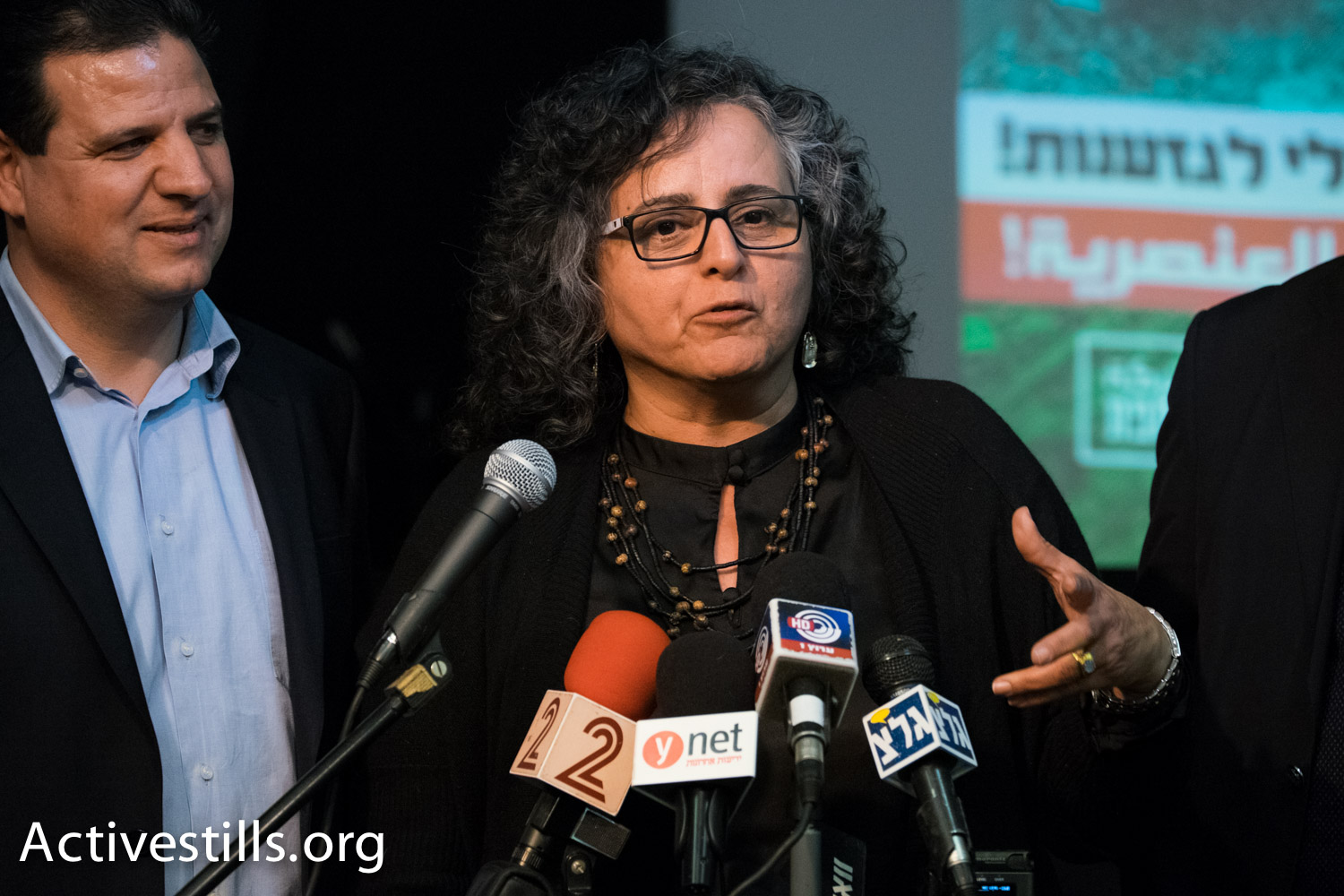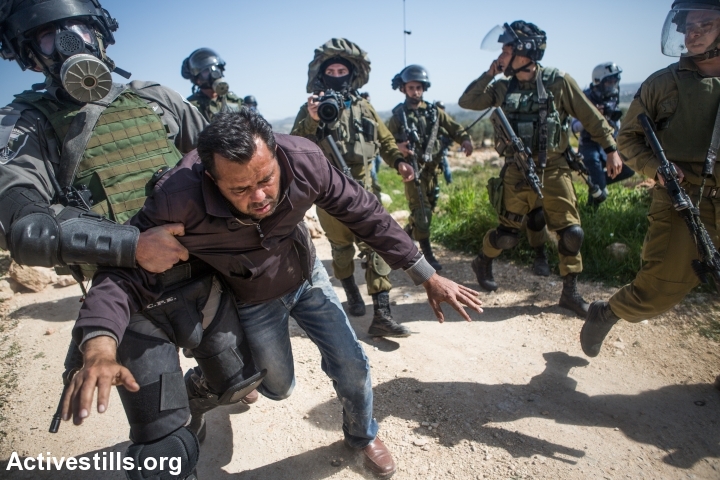Israel’s Arab politicians are often attacked for ‘dealing too much’ with the Palestinian issue. But if they don’t speak up for a people who lack even the most basic civil rights, who will?

One of the most-repeated criticism of Israel’s Palestinian members of Knesset, which always come up around election time, is that they “deal too much” with issues relating to Palestinians in the occupied territories, yet they neglect their voters — the Arab public in Israel.
This criticism was raised, yet again, in Haaretz’s poll [Hebrew] published last week, which raised both these issues, as if they contradict each other. A plethora of articles published in the Hebrew press have repeatedly raised this issue over the past week. Asking what the Arab MKs do for their public is a legitimate and important question, and it has good answers, which are not all reflected in legislation and presence in Knesset committees. But I would like to focus on the second half of the equation.
Arab members of Knesset are often criticized for making hollow gestures or, at worst, being traitors. The general assumption is that the Palestinian population is “external” to Israel, and that its struggle — from its day-to-day protection against the violence of both the military and the settlers to its struggle for independence — has nothing to do with Israel’s parliament. This is where the typical Israeli conversation starts.
And that is precisely where the problem lies. Israel has ruled the territory between the Jordan River and the Mediterranean Sea for nearly 50 years. There are certain areas where Israel has delegated responsibility (though rarely authority) to others, but Israeli sovereignty is bar none. Whether a Palestinian in Gaza can build his home or leave the Strip to study is up to government officials in Jerusalem and members of the Defense Ministry in Tel Aviv. A resident of the West Bank who wants to travel abroad for work or drive to East Jerusalem for medical purposes — and sometimes simply wants to work his land — needs the approval of the Israeli government. Tax collection, control over electricity and water, currency, the population registry, natural resources, movement of people and goods — all of it remains in the hands of the Israeli government.
Democracy for beginners
These people, nearly four million of them, have no representation in the government or the Knesset. They cannot vote. The majority of them have been subjects of a military regime their entire lives. Residents of Bil’in can lose their land to a nearby Jewish settlement that grows at an unprecedented rate while being violently attacked by Israeli soldiers week after week. Only settlers and soldiers, however, have the right to vote for a government that maintains this kind of situation. Even if the residents of Bil’in have something to say about the matter, they do not have the right to vote.

It is worth pausing for a second to take it all in: there are people of different national and religious origin who live one next to the other. No one whines over the fact that the ultra-Orthodox MKs or the Jewish Home party care about their constituents in the settlement of Modi’in Illit. One can criticize the fact that settlers are often treated more favorably than other citizens, but there is no arguing over the fact that the very fact that settlers have the ability to influence government policy.
On the other hand, the people on whose land settlers live, and very often the people who build those settlements — they have no right to expect to be represented in the Knesset.
When the Arab MKs (and the Jewish ones in Hadash) tend to the interests of the Palestinians in the occupied territories, come protest in Bil’in or join flotillas to Gaza — they aren’t doing so as a gesture or a provocation. If Shas’ Aryeh Deri waves the flag of the poor, invisible Mizrahim, and if Joint List head Ayman Odeh mentions that the most invisible citizens are the Palestinian ones, then the Arab parties must take responsibility for the most invisible people in the entire land. These are the a-b-c’s of democracy.
This article was first published on +972′s Hebrew-language sister site, Local Call. Read it in Hebrew here.


